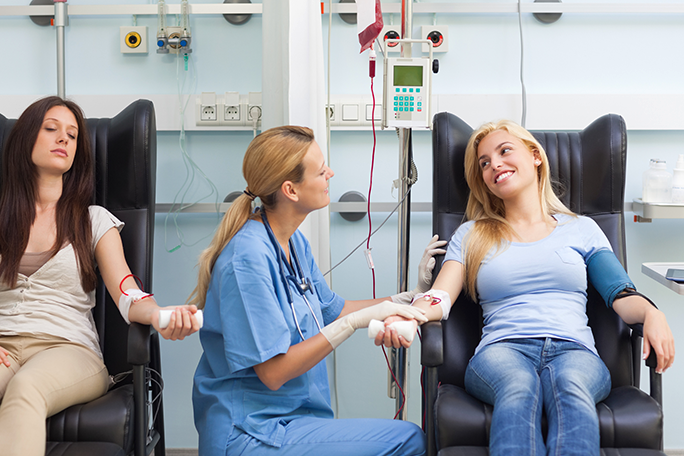Why Is Phlebotomy Essential? Understanding Its Crucial Role in Healthcare diagnostics
in the vast landscape of healthcare, diagnostic accuracy forms the bedrock of effective treatment and patient care. One ofen overlooked yet vital procedure that underpins diagnostic testing is phlebotomy – the practice of drawing blood from patients. Whether it’s for routine health checkups, emergency diagnostics, or chronic disease management, phlebotomy plays an indispensable role in modern medicine. in this comprehensive guide, we explore why phlebotomy is essential, its benefits, practical tips for success, and real-world case studies to illustrate its impact.
What Is Phlebotomy?
Phlebotomy refers to the process of making a controlled incision in a vein wiht a needle to collect blood samples for laboratory testing. It is performed by trained healthcare professionals called phlebotomists or nurses specialized in blood collection. Proper phlebotomy ensures that enough blood is collected safely with minimal discomfort to the patient.
The Critical Role of Phlebotomy in Healthcare Diagnostics
1. Accurate Laboratory Results
Blood samples obtained through phlebotomy are essential in diagnosing illnesses, monitoring health conditions, and guiding treatment plans. Accurate blood collection ensures reliable results for tests such as:
- Complete blood Count (CBC)
- Blood Chemistry panels
- Blood Glucose Tests
- Lipid Profiles
- Infections and Serology tests
- Hormonal Assessments
Any contamination, incorrect collection method, or improper handling can lead to erroneous results, which can later affect patient outcomes. Therefore, skilled phlebotomy is crucial in maintaining diagnostic integrity.
2. Early Detection of Diseases
Blood tests facilitate early detection of health issues such as diabetes, anemia, infections, and autoimmune diseases. Timely diagnosis depends on high-quality blood samples collected through proficient phlebotomy techniques.
3. monitoring Disease Progression and Treatment Efficacy
Regular blood draws allow healthcare providers to track the progress of chronic illnesses like kidney disease, cancer, or autoimmune disorders, and to assess how well treatments are working.
4. Supporting Blood Donation and Transfusions
Phlebotomy is essential in blood donation services, ensuring safe and sterile collection of blood for transfusions. Proper techniques protect donor health and recipient safety.
Benefits of Proper Phlebotomy Practices
Implementing best practices in phlebotomy leads to numerous benefits, including:
- Minimized patient discomfort and anxiety
- Enhanced test accuracy and reliability
- Reduced risk of complications such as hematomas or infections
- Increased patient trust and satisfaction
- Operational efficiency in healthcare settings
Practical tips for Effective Phlebotomy
Choosing the right approach can make a critically important difference. Here are some practical tips:
- Identify the correct vein: Typically the median cubital vein in the antecubital fossa.
- Use the appropriate needle size: Usually, a 21-23 gauge needle suffices for most draws.
- Ensure proper patient positioning: Comfortably seated or lying down to prevent fainting.
- Follow aseptic techniques: Proper hand hygiene and sterile equipment prevent infections.
- Apply gentle pressure: To minimize bruising after drawing blood.
- Handle samples correctly: Proper labeling, storage, and transportation are vital for test accuracy.
The Impact of Phlebotomy on Patient Care: Case Studies and First-Hand Experiences
Case Study 1: Early Detection of Diabetes
A 45-year-old patient visited a primary care clinic for routine screening. A skilled phlebotomist collected blood for fasting glucose and HbA1c tests. The accurate samples led to a diabetes diagnosis that might have or else been missed. Early intervention improved the patient’s health outcomes substantially.
first-Hand Experience: Comfort and Trust
Many patients express appreciation for professional phlebotomy that minimizes discomfort. Proper technique, reassurance, and clear communication foster trust, transforming a potentially stressful experience into a positive one.
Why Investment in Skilled Phlebotomists Matters
Healthcare facilities that invest in training and employing certified phlebotomists see a direct impact on patient safety, test accuracy, and operational efficiency. Certified professionals adhere to industry standards and continuously update their skills, staying current with best practices.
Conclusion
Phlebotomy might seem like a simple procedure, but its significance in healthcare diagnostics cannot be overstated. Proper blood collection is the gateway to accurate test results,early disease detection,effective monitoring,and overall improved patient care. As a cornerstone of medical diagnostics, investing in skilled phlebotomy practices ensures that healthcare providers deliver the highest standards of safety, accuracy, and patient satisfaction.Whether you are a healthcare professional, patient, or policymaker, recognizing the crucial role of phlebotomy underscores its essential place in modern medicine.
Key Takeaways
| Aspect | importance |
|---|---|
| Test Accuracy | Proper blood collection ensures reliable lab results |
| Early Diagnosis | Enables timely disease detection and intervention |
| Patient Safety | Reduces risk of complications like infections or bruising |
| Operational Efficiency | Streamlined procedures improve healthcare delivery |
whether for diagnosis, monitoring, or transfusions, phlebotomy is an essential component of healthcare diagnostics. Its role in ensuring accurate, safe, and effective patient care makes it a foundational skill for healthcare practitioners worldwide.
